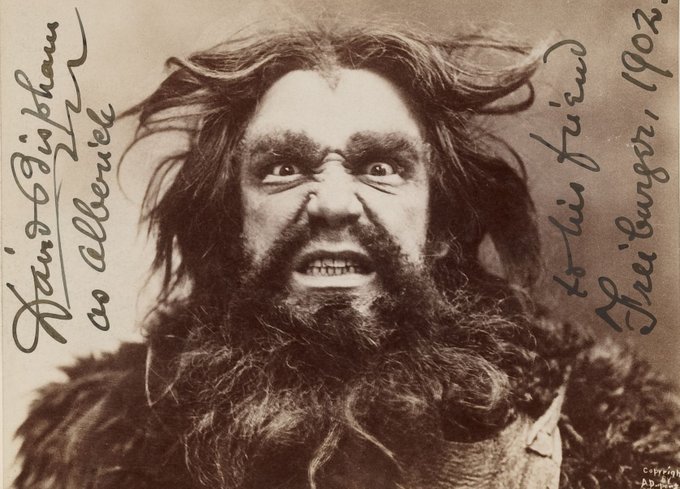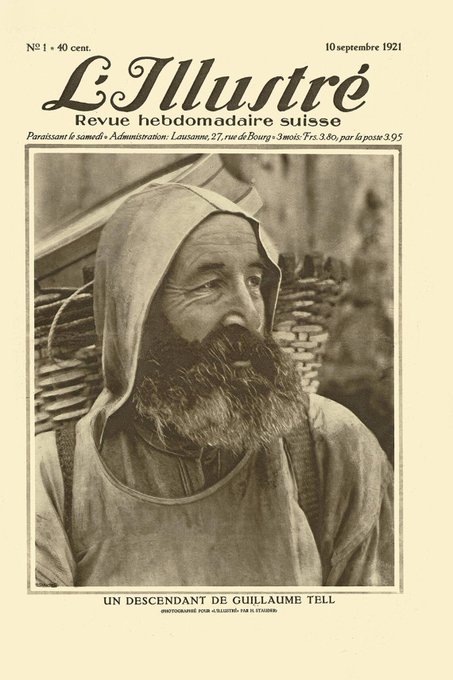Oct. 2, 1921: David Bispham, the leading baritone of U.S. opera, dies at 64 in New York. He began singing professionally at age 28, and achieved international fame in Wagnerian roles (Alberich in the Ring Cycle and Wolfram in "Tannhauser," photos) and at recitals.
Sept. 22, 1921: Mohandas Gandhi adopts his trademark garb of a loincloth to show his identification with India's poor and encourage people to spin their own cloth. He is seen today in Madurai after shaving his head and meeting with a British supporter, Annie Besant. 1/3
Sept. 18, 1921: An exhibition called "5X5=25" opens in Moscow, as avant-garde painters seek to push abstract art into near-total absence of representational qualities. The influential show puzzles audiences as it takes the stand that revolutionary times spell the death of art.
Sept. 10, 1921: The debut issue of a Swiss newsmagazine, L’Illustré, with a "descendant of William Tell" on the cover.
Sept. 5, 1921: "Bobbed hair hats" are being offered in the shops of New York, so that women sporting the hairstyle can show off their short locks to full advantage. The even more streamlined cloche hat will arrive mid-decade. (St. Louis Star)
Sept. 2, 1921: Anthony Lucas, Croatian-born engineer who discovered oil with his Spindleton well in 1901 and set off the Texas black gold boom, dies at 66. His friend President Harding pays respects. (Washington Star)
Aug. 3, 1921: The avant-garde Russian poet Nikolay Gumilyov is arrested in Petrograd and accused of being part of a nonexistent military plot against the Communist regime. The influential writer, the ex-husband of fellow poet Anna Akhmatova, will be executed later this month. 1/2
"Hermannsschlacht," also a play by Heinrich von Kleist, tells the semi-legendary story of Hermann, who defeated the Roman Empire in the Battle of Teutoberg Forest. (New York Herald)
July 30, 1921: Seeking to avoid the attention of police in Shanghai, delegates to the first Congress of the newly formed Chinese Communist Party decamp to a houseboat in nearby Xiajang. The boat is commemorated in artwork glorifying the party in the 1970s.
July 30, 1921: The dangerous job of explosives disposal continues on the old Western Front of France and Belgium. Rows of shells are lined up in ditches, pointed at piles of wood, before being burned, and 9-foot-high German projectiles are broken down. 1/2
























